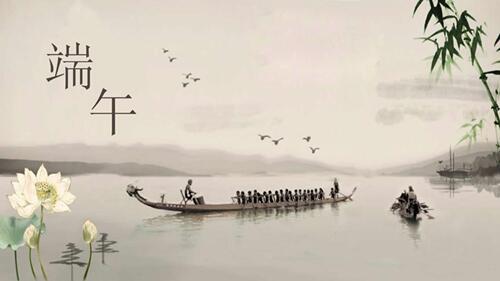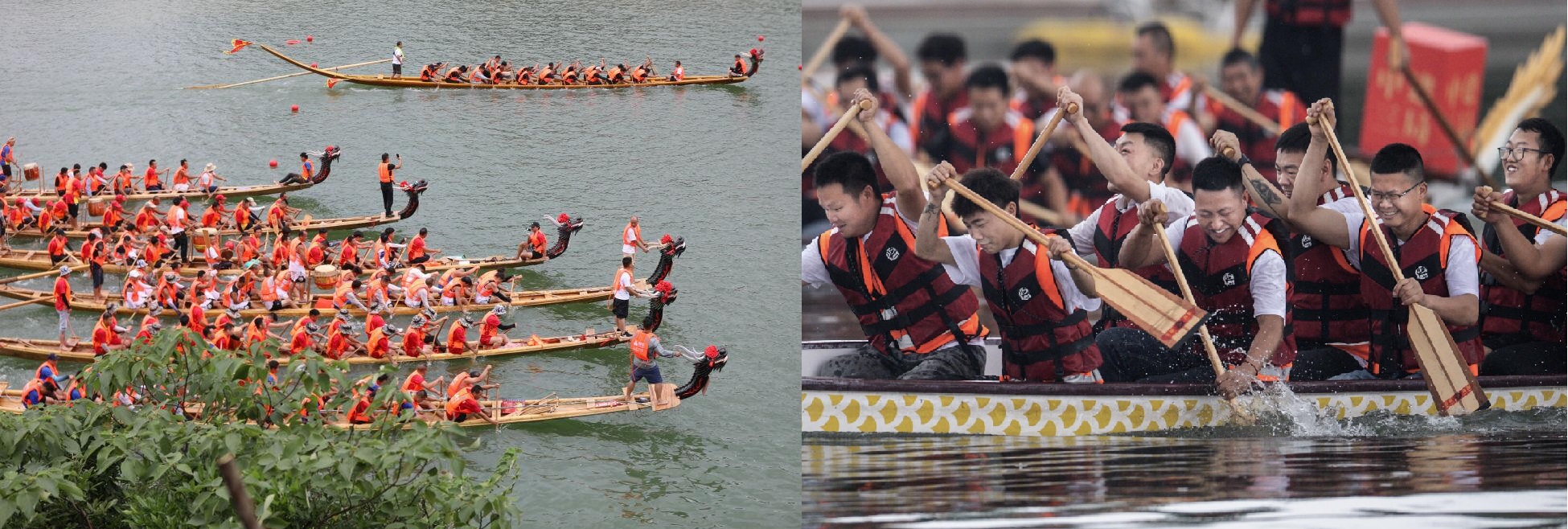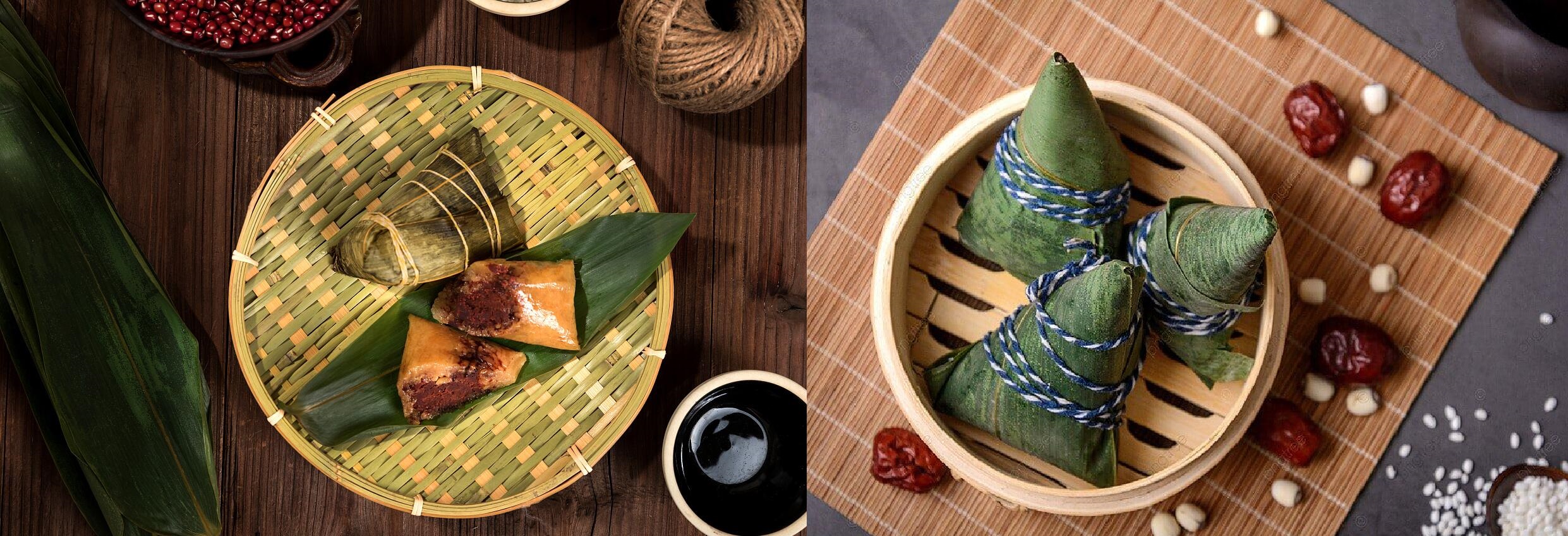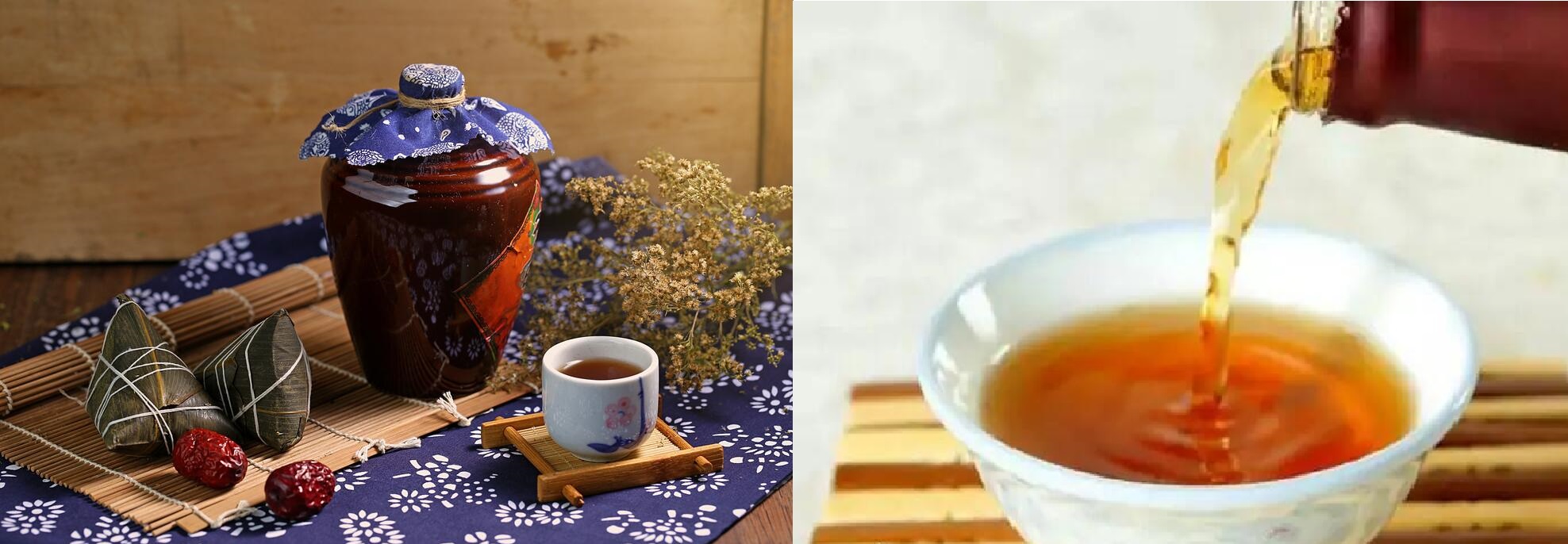
The Dragon Boat Festival, also known as Duanwu Festival, is a significant traditional holiday in China that falls on the 5th day of the 5th month of the lunar calendar. This ancient festival is not just about dragon boat races and sticky rice dumplings; it carries a rich cultural heritage and historical significance. In this blog post, let's explore the fascinating traditions and stories behind the Dragon Boat Festival.

⚙The Origin of Dragon Boat Festival:
The origins of the Dragon Boat Festival can be traced back over 2,000 years. The festival commemorates Qu Yuan, a famous poet and statesman of ancient China. Qu Yuan missed Yingdu day and night, but he was in great pain and sorrow because he was exiled and could not return to serve his motherland. He walked to the Yangtze River, held a stone in his arms, and threw himself into the Miluo River to his death. The local people, who admired him greatly, raced out in boats to save him but were unable to reach him. To prevent fish and evil spirits from consuming his body, they threw rice dumplings into the river. This is said to be the origin of the zongzi, a traditional sticky rice dumpling wrapped in bamboo leaves.
⚙Dragon Boat Races:
One of the most exciting aspects of the Dragon Boat Festival is the dragon boat races. These colorful and energetic races involve teams of rowers paddling harmoniously to the beat of drums, striving to reach the finish line first. The sight of dragon boats slicing through the water is not just a thrilling sport but a symbol of teamwork and community spirit.

⚙Traditional Delicacies: Zongzi and Realgar Wine:
Zongzi, pyramid-shaped dumplings made from glutinous rice, wrapped in bamboo leaves, and filled with a variety of delicious ingredients, are a staple during the Dragon Boat Festival. Each region in China has its unique way of making zongzi, reflecting diverse culinary traditions.

Another interesting aspect of this festival is the consumption of realgar wine. Realgar, an arsenic sulfide mineral, was believed to have the power to ward off evil spirits. People consume this wine, often mixed with herbs, as a traditional ritual to protect themselves from illness and bad luck.

⚙Symbolism and Customs:
Apart from dragon boat races and delectable treats, the Dragon Boat Festival is associated with various customs and symbols. Hanging up pouches of herbs, wearing colorful silk threads, and displaying portraits of the five poisonous creatures are common practices during this festival. These customs are believed to safeguard individuals and their families against diseases and misfortune.

⚙Conclusion:
The Dragon Boat Festival offers more than just an adrenaline-pumping race or a tasty snack; it provides a window into the rich tapestry of Chinese culture and history. As we celebrate this festival, let's not only enjoy the festivities but also appreciate the enduring traditions and stories that have been passed down through generations. Whether you're participating in a dragon boat race, savoring zongzi, or simply enjoying the vibrant atmosphere, remember that you are partaking in a celebration that unites people in the spirit of camaraderie and heritage. Happy Dragon Boat Festival!
Links